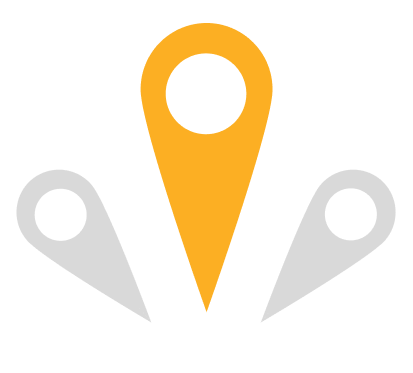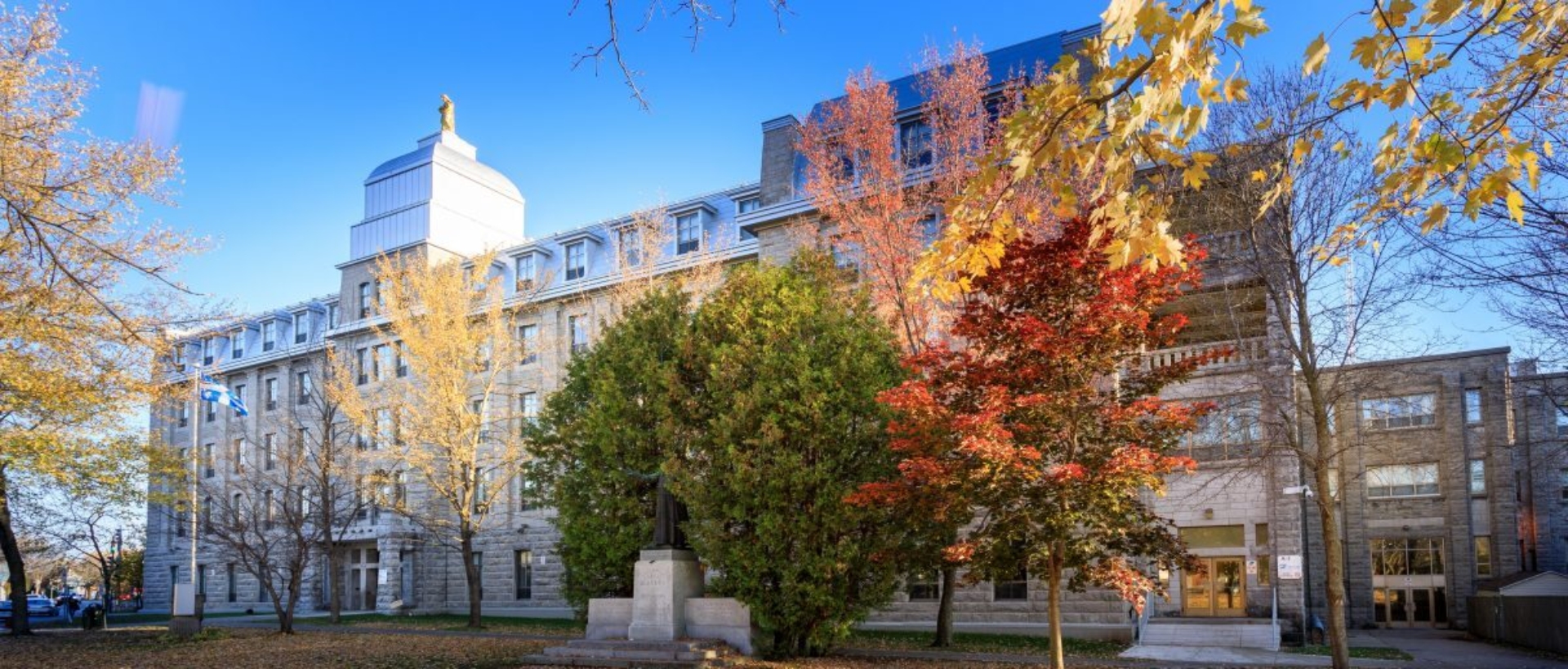International students, this site is for you!
Explore the CEGEP's higher education offerings and live the CEGEP experience!
Find out why international students choose Quebec for their higher education.
Welcome to the International Page of the CEGEP Network!
Explore over 120 programs that can lead you to a promising career—and experience something truly unique and inspiring at one of our CEGEPs.
Ready to shape your future?
Discover CEGEP
My Path to CEGEP


Find a CEGEP
Our network includes 48 CEGEPs—some with multiple campuses or national schools specializing in certain fields. Explore each school’s profile to learn more.

“There’s an incredible open-mindedness, kindness, and understanding of people here.” — Clara Plébani, student at Cégep de Sainte-Foy, Québec City
FAQ
Programs
What Programs Are Offered at CEGEP?
As an international student, you can choose from 125 technical and pre-university programs across 48 institutions in Québec.
Explore your options and find the program that fits you best.
What’s the Difference Between Technical and Pre-University Programs?
Want to enter the job market quickly? Technical programs are your best choice. In three years (six semesters), you’ll be ready to launch your career.
Want to go to university? Pre-university programs last two years (four semesters) and are the ideal preparation.
How Long Do CEGEP Programs Last?
- Technical programs: 3 years (6 semesters)
Pre-university programs: 2 years (4 semesters)
-
Short-term programs (AEC): 6 to 18 months
Can I Take French or English Courses at CEGEP?
Planning to study in a CEGEP where the language of instruction isn’t your mother tongue? Many options are available to improve your French or English skills.
What is a Short-Term Program?
CEGEPs offer short-term programs that typically last between 6 and 18 months. Duration varies depending on the program and the institution.
These programs are mainly designed for adults with prior work experience and/or education.
They are usually focused on professional development and may require specific prerequisites.
Graduates receive an Attestation of College Studies (AEC).
Admission and immigration
Admission Requirements
To be eligible for admission to a CEGEP, you must have completed at least 11 years of schooling in your home country.
In the French system, this means completing Première (Grade 11). However, it’s strongly recommended to earn your baccalauréat before coming to study in Québec.
Some programs also require specific prerequisite courses. These are listed on each program’s information page.
How to Apply from Abroad + Key Deadlines
There are three regional admission services. Each CEGEP is associated with one, depending on its location: SRAM (Service régional d’admission du Montréal métropolitain - for Montréal and surrounding areas), SRACQ (Service régional d’admission au collégial de Québec - for Québec City and eastern regions) et SRASL (Service régional de l’admission des cégeps du Saguenay-Lac-Saint-Jean - for the Saguenay–Lac-Saint-Jean region). You must apply through the appropriate service based on the CEGEP you choose.
Deadlines:
-
For the Fall session (starting in August): apply before February 1
-
For the Winter session (starting in January): apply before September 1
Is There an Age Limit to Apply?
No. There is no age limit to study at a CEGEP.
How to Get a Study Permit
Before applying for a study permit, you must:
-
Apply and be accepted into a CEGEP program.
-
Complete your immigration process.
Important: Plan up to 5 months to complete all the steps. It’s your responsibility to meet the requirements.
Can I Work While Studying?
Yes, under certain conditions, you may be eligible to:
-
Work on campus
-
Work off campus
-
Do a paid or unpaid internship as part of your program
To know your eligibility, visit the Immigration, Refugees and Citizenship Canada (IRCC) website.
Most CEGEPs also offer job placement services to help you find employment.
Finding Housing
You can live:
-
In a student residence on campus
-
Or in private housing off campus
Your CEGEP can guide you through your options.
CEGEPS: Costs and Financial Aid
Are There Financial Aid Options?
Depending on your citizenship and place of residence, you may be eligible for:
-
Tuition waivers
-
Excellence scholarships
-
Other financial aid agreements with your region
If you are a French citizen (not living in another Canadian province when applying), you are exempt from international tuition fees at CEGEPs.
If you are not French, you may still qualify for special funding programs.
How Much Does CEGEP Cost?
Thanks to Québec’s financial aid programs, you may be eligible for a full or partial exemption from international tuition fees. International students must pay tuition each semester, and fees vary depending on the program. Explore the Tuition Waiver Program and Excellence Scholarship Program.
What Is a Tuition Waiver?
This program lets international students enrolled in technical diploma programs (DEC) avoid paying additional international tuition fees.
To apply:
-
You must be admitted or enrolled at a CEGEP
-
The CEGEP will provide you with the application form
What Is an Excellence Scholarship?
This program also exempts eligible students from international tuition fees.
To qualify, you must:
-
Be a citizen of one of the 44 countries in the Francophonie
-
Study at a CEGEP outside the Montréal metropolitan area
-
Have strong academic performance
Like the waiver, you must be admitted or enrolled to receive the form from the CEGEP.
How to Contact a CEGEP?
Our network includes 48 CEGEPs, some with multiple campuses or national schools (e.g., École du meuble, École nationale d’aérotechnique). Visit each institution’s profile to find their contact information.
How to Choose the Right CEGEP?
If your program is offered at many schools, here’s what to consider:
-
Location
-
Student residence availability
-
Activities and campus life
-
Program specializations at each CEGEP
What Is a CEGEP?
The word CEGEP stands for Collège d’enseignement général et professionnel. It’s a public post-secondary institution unique to Québec. CEGEPs offer the first level of higher education in the province. All programs lead to a state-recognized diploma.
What’s the Academic Calendar?
The school year runs from mid-August to late May, and includes two sessions:
-
Fall: mid-August to late December
-
Winter: January to late May
CEGEP vs. University: What’s the Difference?
While CEGEPs are unique to Québec, similar technical post-secondary programs exist worldwide.
CEGEP Offers 3 Program Types:
-
Technical Programs (3 years / 6 semesters)
-
Prepare you for the job market
-
Include practical, often paid internships
-
Can also lead to university
-
-
Pre-university Programs (2 years / 4 semesters)
-
Prepare you for university
-
Ideal for students who don’t yet meet direct university requirements
-
-
Short-Term Programs (6–18 months)
-
Lead to an Attestation of College Studies (AEC)
-
Often designed for adults with prior training or experience
-

Québec: A Unique Province to Discover
Studying at a CEGEP in Québec means experiencing life in North America in a setting that’s student-focused, human and vibrant.
Why Choose Québec?
✔ Live the Canadian experience in a safe, dynamic, student-centred environment
✔ Access a high-quality education that leads to a diploma
✔ Enjoy exceptional quality of life and safety
✔ Study in French—in North America!
✔ Embrace diversity and inclusivity
✔ Explore nature and wide-open spaces



